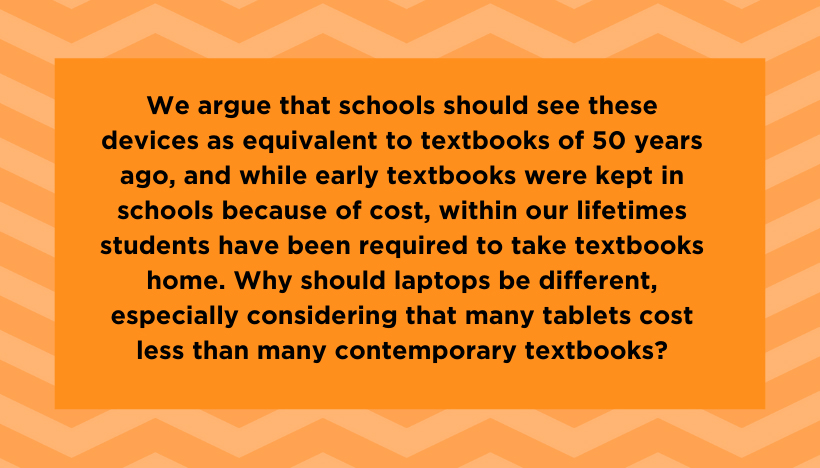From the NCTE Assembly on Computers in English (ACE)
This post was written by NCTE and ACE members Robert Williams and Dan Woods.
In April of 2019, in her NCTE blog post “Doing Digital Advocacy,” Mary Rice offered the suggestion that we all have an obligation to share our convictions about digital equity. She wrote: “Finally, it is critical to share convictions about digital equity.”
We do share her conviction. Enacting that conviction in everyday pedagogy requires clarity of purpose, understandably, but further requires the clarity of understanding the elements necessary to equity in our digital lives. These elements intersect across the domains of access and literacy.
In that light, and as we think about our contemporary society and daily headlines, we note that we’ve been concerned for many years by the ways schools separate and exacerbate difference instead of celebrating shared humanity.
This seems especially clear to us when we think about the move to computerized testing in schools, because that move privileges students who have access to computers. Sadly, then, kids who show up and take the test with no or limited computer experience overall are at a disadvantage compared to those who are far more familiar with computers.
As educators, and with an eye toward the landscape of economics (how many billionaires are we up to, now?) and digital devices in American society, we argue for laptops or tablets for every student. We argue that schools should see these devices as equivalent to textbooks of 50 years ago, and while early textbooks were kept in schools because of cost, within our lifetimes students have been required to take textbooks home. Why should laptops be different, especially considering that many tablets cost less than many contemporary textbooks?
We’re prepared to argue that the real end game requires every teacher at every level to plan lessons with the expectation that (eventually) contemporary society will provide every learner with an internet-connected device, whether it be an iPad, a Nook, aKindle, a Nodulette, a Jog, a RollUP, a Softscreen, a Plum, a Kumquat, or whatever fruity device is in hand. (Okay, we admit we made some of those names up.) We’re already there in many, many schools (especially well funded ones), and we hope all schools will soon get there.
We’re prepared to argue that educators at every level should be obligated to actively explore how to lead students to write and read in their own social media accounts, and as an embedded part of their own autobiographic online presence (their “story,” to borrow the contemporary term).
This exploration further requires pedagogic leadership on any of a variety of digital, cellular, or internet-enabled devices capable of accessing SnapChat, TikTok, Instagram, Flickr, FB Moments, Pinterest, or any similar social media site focused on sharing of one’s life and life experiences.
Beyond the static and stale concepts of creating hypothetical or artificial Snap Stories, or TikTok videos, or similar products in the persona of a literary character, this exploration requires a consequential next step embedded in the reality of what we, as engaged writers, and readers, have in our own social media lives.
By having students respond in their own voices and on their own media accounts, those students will be encouraged, over time, to begin to authentically respond with real likes and dislikes, with honest writing and reading and responses to literature that become an inherent “moment” in their own timelines and autobiographic identities online.
Our obligation, again, is to promote digital equity, not dismiss it and the tools that engender it.

Robert Williams is chair of both the Department of English and the Department of Foreign Languages and Literatures at Radford University. He is a member of ACE, NCTE, and VATE, and is a former president of Virginia’s CEE affiliate, VCEE. He teaches a variety of classes in literature, linguistics, interdisciplinary liberal arts, and elementary and secondary language arts teaching methods, and has taught welding and machine shop and high school English during the current and previous centuries but has focused almost exclusively on liberal arts and education-related topics in the current century.
 Dan Woods currently serves as the director of the interdisciplinary studies program at Radford University and in the past, served as the coordinator of the English education program. He is a member of ACE, NCTE, VATE, and is a former member of the executive board of the Virginia Association of Teachers of English (Virginia’s NCTE affiliate) and editor of The Virginia English Journal.
Dan Woods currently serves as the director of the interdisciplinary studies program at Radford University and in the past, served as the coordinator of the English education program. He is a member of ACE, NCTE, VATE, and is a former member of the executive board of the Virginia Association of Teachers of English (Virginia’s NCTE affiliate) and editor of The Virginia English Journal.
It is the policy of NCTE in all publications, including the Literacy & NCTE blog, to provide a forum for the open discussion of ideas concerning the content and the teaching of English and the language arts. Publicity accorded to any particular point of view does not imply endorsement by the Executive Committee, the Board of Directors, the staff, or the membership at large, except in announcements of policy, where such endorsement is clearly specified.

